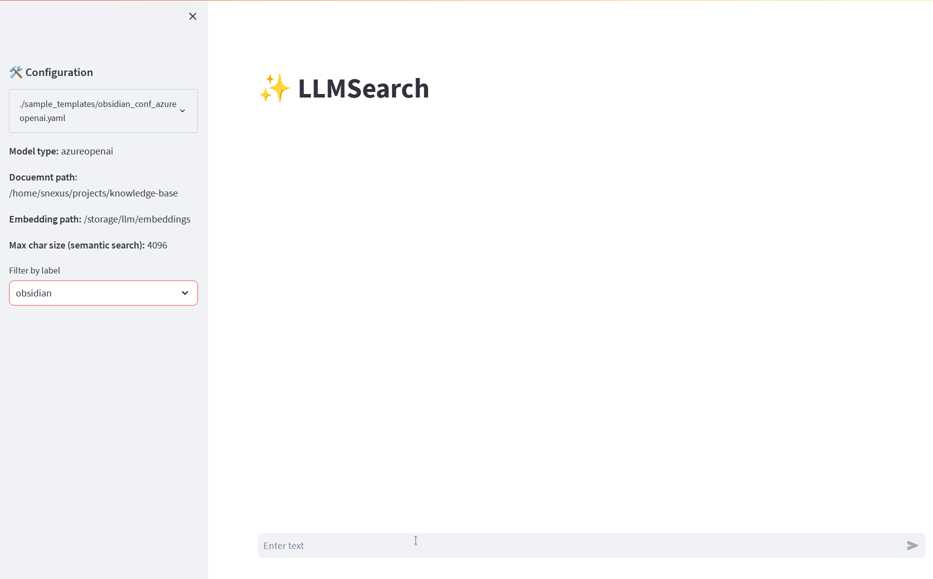The purpose of this package is to offer a convenient question-answering (RAG) system with a simple YAML-based configuration that enables interaction with multiple collections of local documents. Special attention is given to improvements in various components of the system in addition to basic LLM-based RAGs - better document parsing, hybrid search, HyDE enabled search, chat history, deep linking, re-ranking, the ability to customize embeddings, and more. The package is designed to work with custom Large Language Models (LLMs) – whether from OpenAI or installed locally.
-
Supported formats
- Build-in parsers:
.md- Divides files based on logical components such as headings, subheadings, and code blocks. Supports additional features like cleaning image links, adding custom metadata, and more..pdf- MuPDF-based parser..docx- custom parser, supports nested tables.
- Other common formats are supported by
Unstructuredpre-processor:- List of formats see here.
- Build-in parsers:
-
Support for table parsing via open-source gmft (https://github.com/conjuncts/gmft) or Azure Document Intelligence.
-
Optional support for image parsing using Gemini API.
-
Supports multiple collection of documents, and filtering the results by a collection.
-
An ability to update the embeddings incrementally, without a need to re-index the entire document base.
-
Generates dense embeddings from a folder of documents and stores them in a vector database (ChromaDB).
- The following embedding models are supported:
- Hugging Face embeddings.
- Sentence-transformers-based models, e.g.,
multilingual-e5-base. - Instructor-based models, e.g.,
instructor-large.
- The following embedding models are supported:
-
Generates sparse embeddings using SPLADE (https://github.com/naver/splade) to enable hybrid search (sparse + dense).
-
Supports the "Retrieve and Re-rank" strategy for semantic search, see here.
- Besides the originally
ms-marco-MiniLMcross-encoder, more modernbge-rerankeris supported.
- Besides the originally
-
Supports HyDE (Hypothetical Document Embeddings) - see here.
- WARNING: Enabling HyDE (via config OR webapp) can significantly alter the quality of the results. Please make sure to read the paper before enabling.
- From my own experiments, enabling HyDE significantly boosts quality of the output on a topics where user can't formulate the quesiton using domain specific language of the topic - e.g. when learning new topics.
-
Support for multi-querying, inspired by
RAG Fusion- https://towardsdatascience.com/forget-rag-the-future-is-rag-fusion-1147298d8ad1- When multi-querying is turned on (either config or webapp), the original query will be replaced by 3 variants of the same query, allowing to bridge the gap in the terminology and "offer different angles or perspectives" according to the article.
-
Supprts optional chat history with question contextualization
-
Allows interaction with embedded documents, internally supporting the following models and methods (including locally hosted):
- OpenAI models (ChatGPT 3.5/4 and Azure OpenAI).
- HuggingFace models.
- Llama cpp supported models - for full list see here.
- AutoGPTQ models (temporarily disabled due to broken dependencies).
-
Interoperability with LiteLLM + Ollama via OpenAI API, supporting hundreds of different models (see Model configuration for LiteLLM)
-
Other features
- Simple CLI and web interfaces.
- Deep linking into document sections - jump to an individual PDF page or a header in a markdown file.
- Ability to save responses to an offline database for future analysis.
- Experimental API
